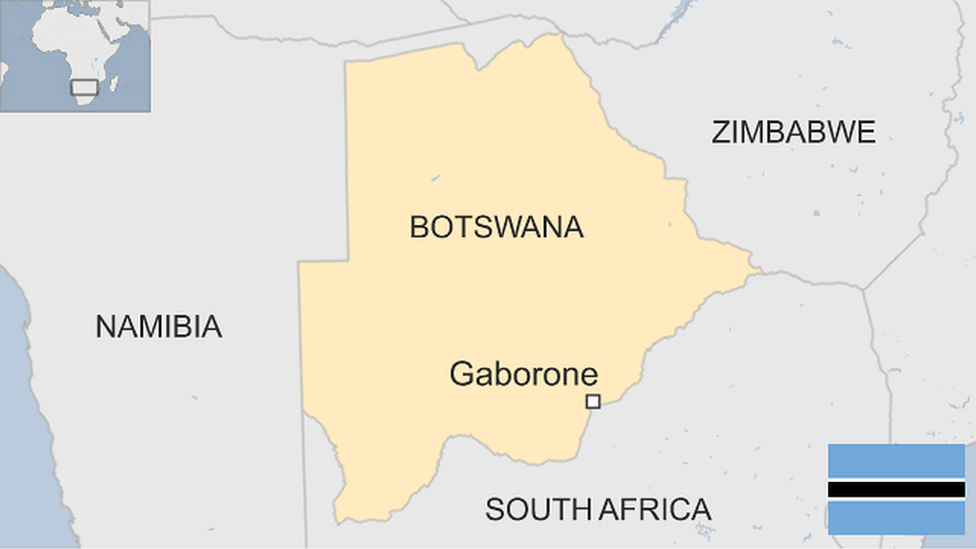Zambia country profile
- Published
This page is no longer being updated. It was last updated on 24 March 2023
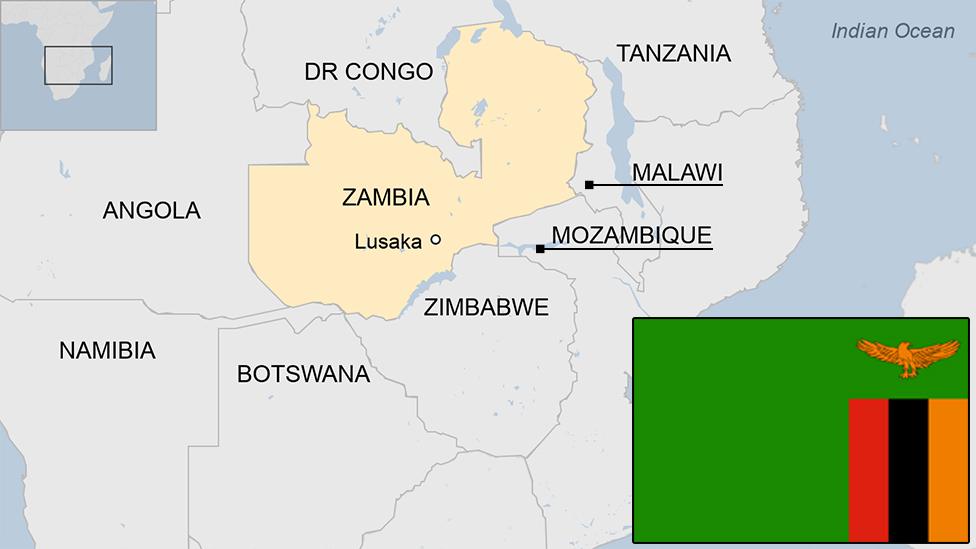
Zambia, unlike most of its neighbours, has managed to avoid the war and upheaval that has marked much of Africa's post-colonial history, earning itself a reputation for political stability.
The landlocked country has experienced rapid economic growth over the last decade as Africa's second largest copper producer after the DR Congo. But its over-reliance on copper has made it vulnerable to falling commodity prices.
Zambia also has one of the world's fastest growing populations with the UN projecting that its population will triple by 2050.
But economic growth and massive Chinese investment have failed to improve the lives of most Zambians, with two-thirds still living in poverty.
Read more profiles by BBC Monitoring, external
REPUBLIC OF ZAMBIA: FACTS
Capital: Lusaka
Area: 752,617 sq km
Population: 19.6 million
Languages: English, Nyanja, Bemba
Life expectancy: 60 years (men) 65 years (women)
LEADER
President: Hakainde Hichilema
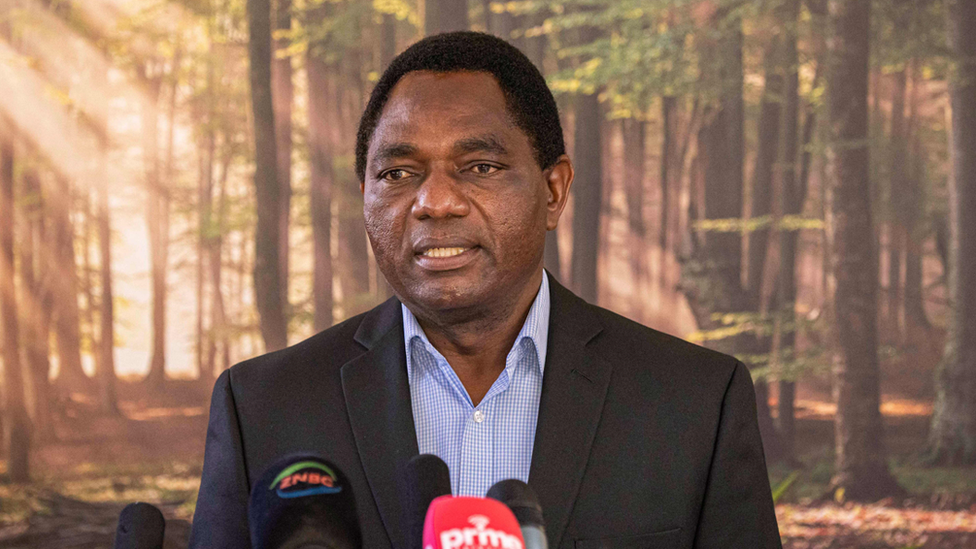
Hakainde Hichilema won a landslide victory over the incumbent president, Edgar Lungu, in the August 2021 elections. He is the first president elected from the liberal opposition United Party for National Development, having stood for the post a number of times before.
Mr Lungu struggled to revive an economy hit by a slump in the price of copper and defaulted on Zambia's international debts during the Covid-19 crisis.
His dependence on Chinese investment has been controversial, and Mr Hilichema has said he will seek broader foreign investment.
Prior to his election, Hichilema was a major opponent of Edgar Lungu, president from 2015 to 2021. In April 2017, he was arrested and charged with treason - seen as a move by Lungu to silence a political rival.
He was released without charge in August 2017 after mouinting domestic and international pressure.
MEDIA
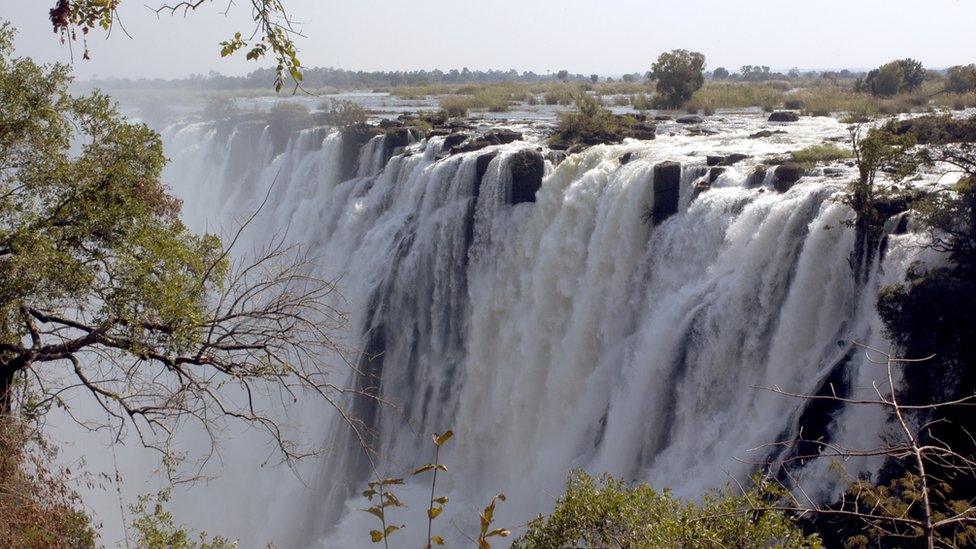
The spectacular Victoria Falls are on Zambia's border with Zimbabwe
Radio is the main news source. State-run ZNBC operates alongside private stations.
The government uses financial pretexts or laws on defamation to prosecute journalists, says Reporters Without Borders.
TIMELINE
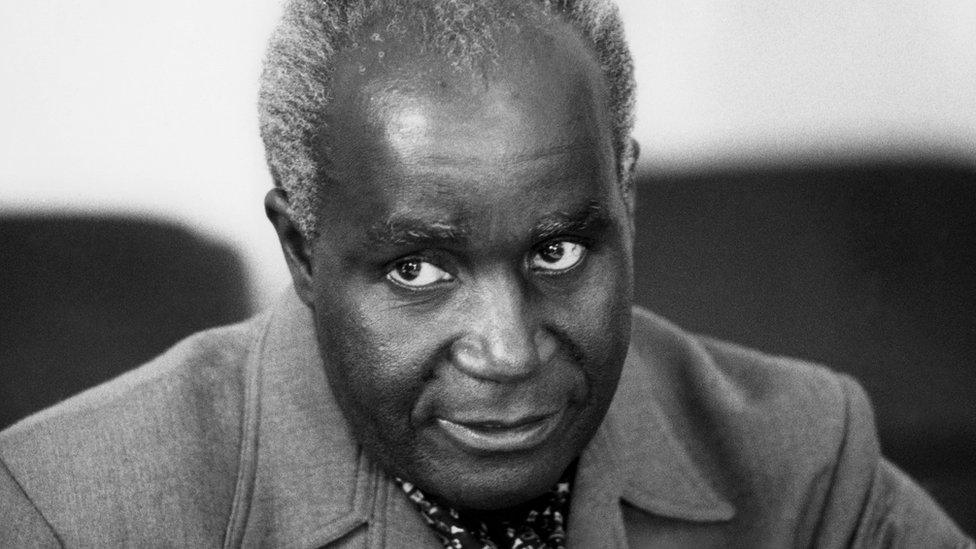
Kenneth Kaunda led the struggle for independence. He served as president for almost 30 years before stepping aside
Some key dates in Zambia's history:
12th Century - Shona people arrive in the area, later establishing the empire of the Mwene Mutapa, which includes southern Zambia.
16th Century - Arrival of peoples from Luba and Lunda empires of Zaire to set up small kingdoms.
Late 18th Century - Portuguese explorers visit.
19th Century - Instability generated by migration as well as slave-trading by Portuguese and Arabs.
1851 - British missionary David Livingstone visits.
1889 - Britain establishes control over Northern Rhodesia, administering the area using a system of indirect rule which leaves power in the hands of local rulers.
Late 1920s - Discovery of copper, which later encourages an influx of European technicians and administrators.
1953 - Creation of the Federation of Rhodesia and Nyasaland, comprising Northern Rhodesia (now Zambia), Southern Rhodesia (now Zimbabwe) and Nyasaland (now Malawi).
1960 - Independence struggle: Kenneth Kaunda launches United National Independence Party (UNIP).
1964 - Independence: Northern Rhodesia is renamed Zambia, President Kaunda rules for next 27 years.
Late 1960s-1970s - Key enterprises nationalised. Private land nationalised in an unsuccessful agricultural improvement programme.
1972 - One-party state: Kaunda's UNIP becomes the only legal party until 1991.
1975 - Tan-Zam railway opened, providing a link between the Copperbelt to the Tanzanian port of Dar es Salaam, reducing Zambian dependence on Rhodesia and South Africa for its exports.
1976 - Zambia declares support for the independence struggle in Rhodesia. Zambian help proves crucial to the transition of Rhodesia to an independent Zimbabwe.
1991 - First multi-party elections in 23 years, Frederick Chiluba's Movement for Multiparty Democracy (MMD) wins.
1997 - Attempted coup. Former President Kaunda is arrested but later walks free.
2001 - President Chiluba steps down over opposition to his bid to run for an unconstitutional third term.
2010 - Zambia and China sign mining cooperation agreement and deal to set up joint economic zone.
Zambia, China agree to build a second hydroelectric power plant on the Kafue River.
Chinese mine managers charged with attempted murder following a multiple shooting at a mine where workers were demonstrating against conditions.
2013 - The government takes over the Chinese-owned Collum Coal mine after revoking its licence because of safety lapses.
2021 - Opposition leader Hakainde Hilichema wins landslide in presidential election.
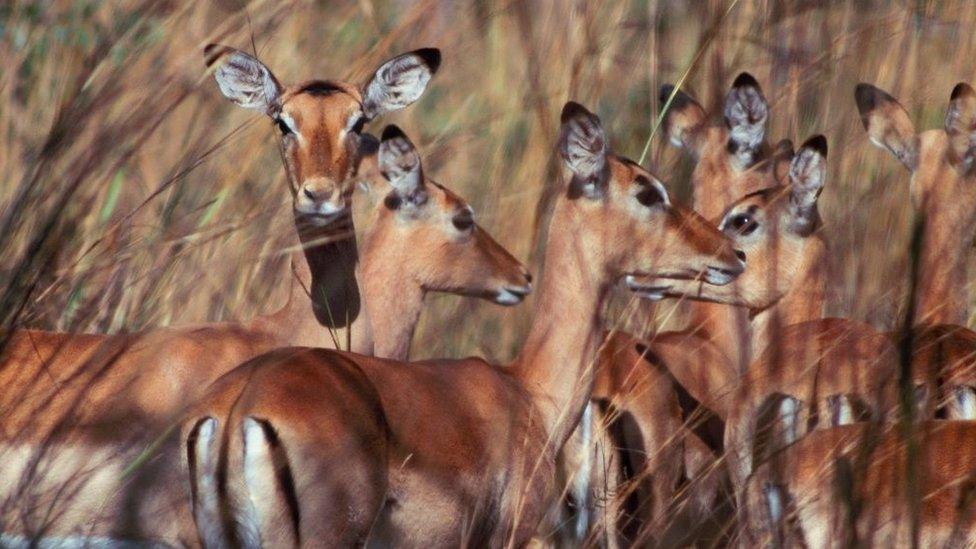
Zambia is trying to reduce its reliance on the copper industry by investing in tourism
- Published21 February 2023
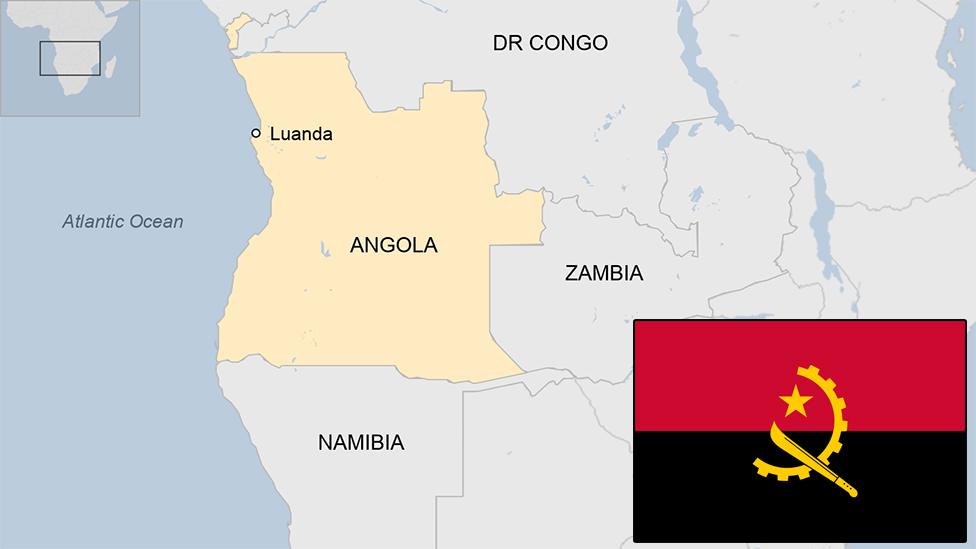
- Published31 January
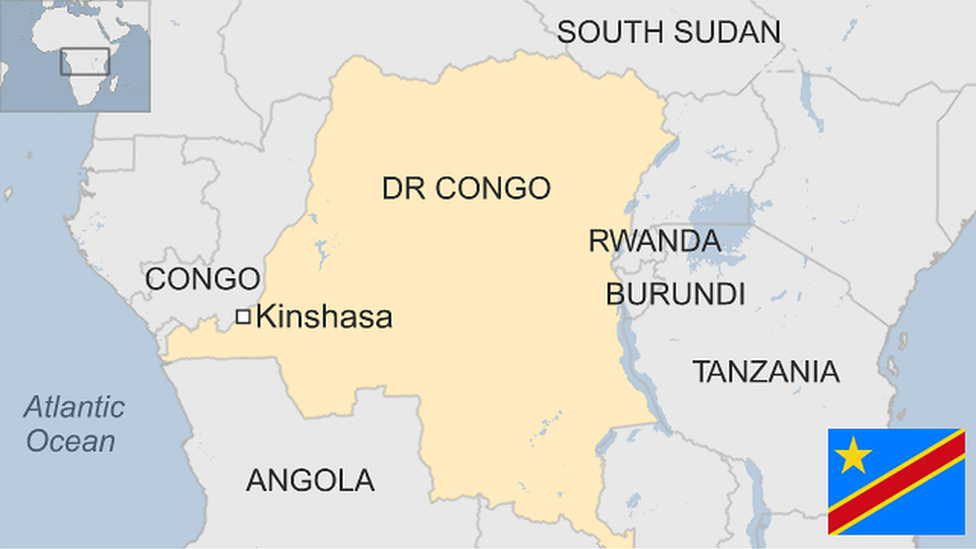
- Published5 May 2023
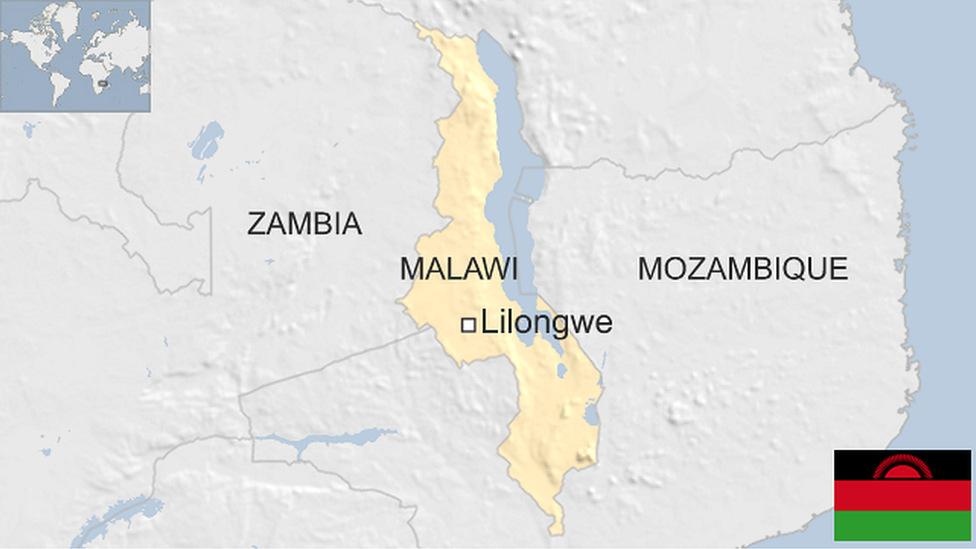
- Published25 October 2024
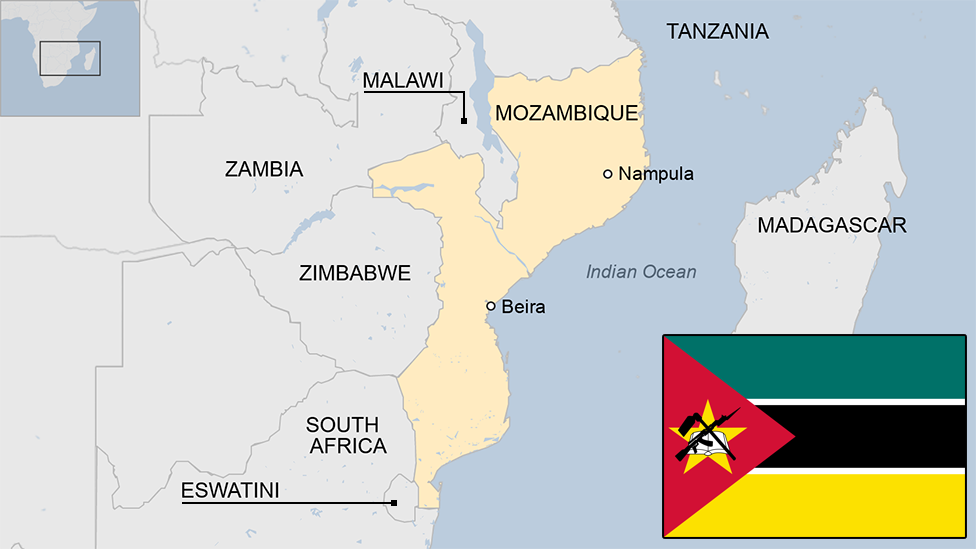
- Published30 August 2023
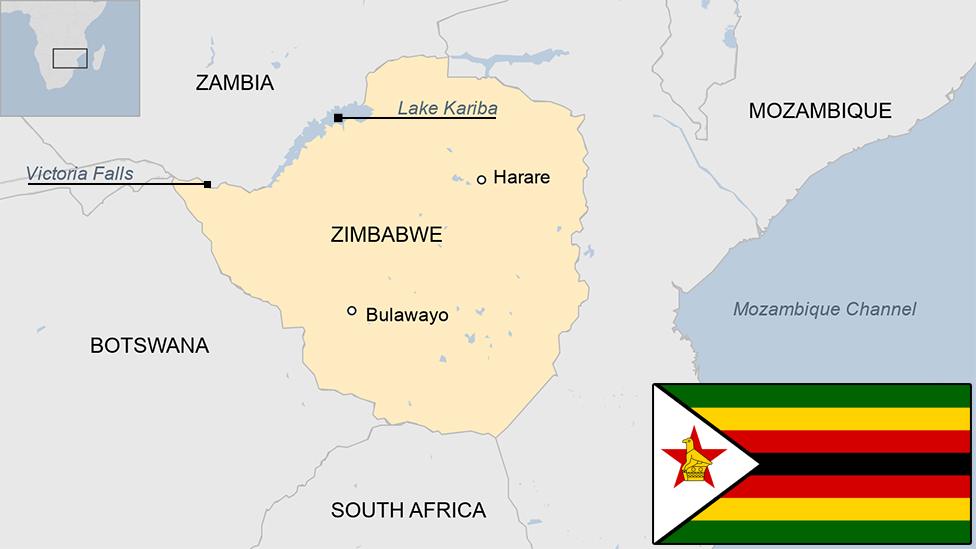
- Published11 November 2024
